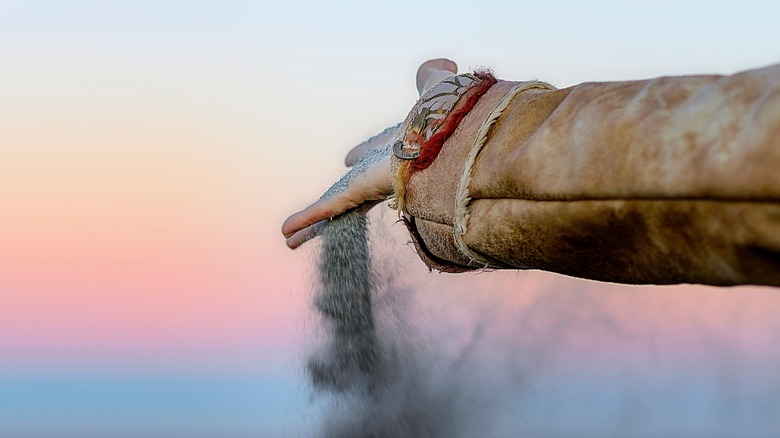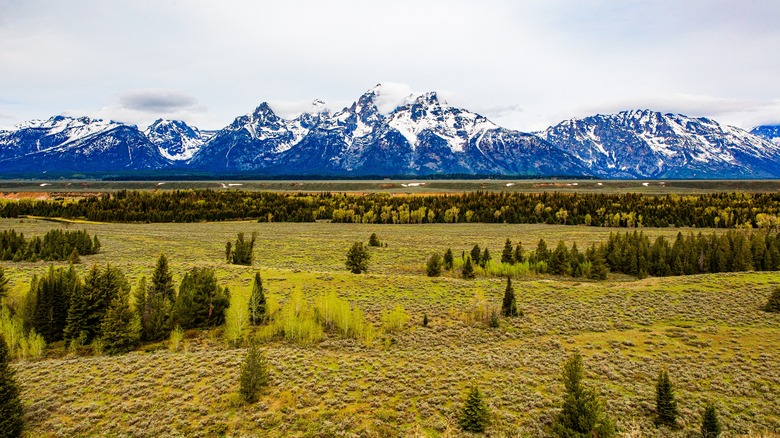Can You Legally Scatter A Loved One's Ashes At Their Favorite National Park?
For loved ones who pass away, a common last request is to scatter their ashes somewhere significant after cremation. There is great meaning behind this gesture for the deceased, and for the living, it can provide closure. In a way, a dear family member or friend can be at rest in a special place. It's a beautiful image, but practically speaking, scattering ashes can be a little bit complicated.
The rule of thumb is that public or private property that you do not own requires written or recorded permission before any ashes are scattered. These areas include anything from cemeteries to America's long list of national parks. On that latter point, it's not surprising that many would want national parks to be their forever resting place. There's something poetic about the idea of "returning" to nature, far away from man-made cities. That said, it's not as easy as walking in, picking a good spot, and blowing the ashes to the wind.
Yes — you can legally scatter a loved one's ashes in many U.S. national parks, but only if the specific park allows it. You also have to obtain any required written permission beforehand. Each park has its own regulations, and it's essential to do your research and follow official guidelines before making any plans.
Permissions are needed to legally scatter ashes in national parks
If your loved one's last request was to have their ashes scattered in their favorite national park, your first step should be to check whether the park allows it. Great Smoky Mountains National Park, America's most visited national park, Grand Teton National Park, and Joshua Tree National Park are some of the major destinations that allow visitors to scatter ashes, though you'll need clearance from park officials beforehand.
Terms and conditions for receiving permits from national parks vary, but know that you'll have to abide by special rules or restrictions, which differ from park to park. Some parks require you to submit a special-use permit request at least 10 business days in advance, and you may be required to carry the approval letter with you during your visit. There are other guidelines to keep in mind, like how several parks don't allow scattering ashes near rivers, streams, or creeks, and most request that no markers be left at the site. It's also worth noting that this process applies to the different national and state parks across the country. When in doubt, contact park officials directly and follow their instructions.
While some national parks are fine with the gesture, so long as the paperwork is filled out, others strictly forbid scattering ashes. This is the case for Grand Canyon National Park. If you've heard stories of people scattering ashes here before, it's because it used to be allowed. Following a new agreement with local indigenous tribes, the national park has permanently banned this activity, which had long been considered disrespectful to communities in the area.

